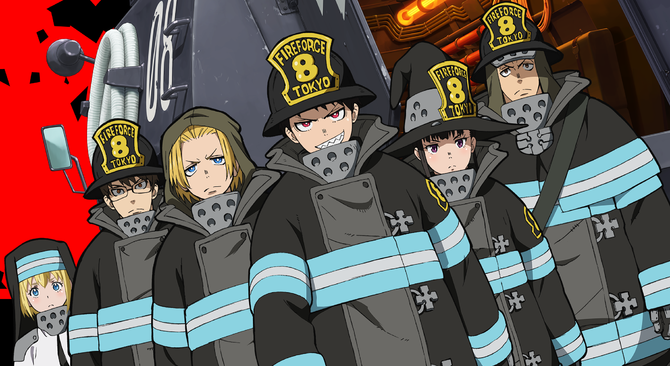You Get What You Deserve: A Review of JOKER
Todd Phillips’ The Joker
DC’s JOKER became one of the most controversial films simply by existing. Dozens of media outlets have branded this film “dangerous” and “an incel’s fantasy”, among worse things. So much of the media has been so sure of this film’s ability to incite violence that there have been protests, the film has been barred from certain theaters and the studio has had to go out of their way to say that the film is not meant to make The Clown Prince of Crime a hero in any way. And, after seeing the film for myself, it’s almost infuriating that they had to do so.
Todd Phillips
JOKER, directed by Todd Phillips, tells the story of a man named Arthur Fleck (played by Joaquin Pheonix), a man struggling with crippling mental illness trying to become a standup comedian. His life falls apart and he is driven to absolute madness, becoming the eponymous Joker. Those familiar with Batman comics may find this premise very similar to The Killing Joke, Alan Moore’s famous Joker origin comic. While JOKER does share a vague similarity to that comic, the depths of the differences are what truly make this film stand as one of the greatest character studies I have ever seen put to film.
Authur Fleck: Joaquin Pheonix
Arthur Fleck’s story takes place in Gotham during the 1970’s, a dark mirror of the notoriously violent and dangerous age in New York City, where people would steal or assault you and the police could do little about it because so much of the city had the same thing happening everywhere else. Arthur makes ends meet as a clown for hire to support his aging mother, who cannot support herself. The stress of caring for her and the burden of his own mental illness, such as detachment from reality and fits of uncontrollable, sometimes inappropriate laughter in a powder keg of an environment is all a recipe to light his powder keg of a brain on fire. Joaquin Pheonix is absolutely transcendent, bringing with his performance a terrifyingly real depiction of severe mental illness, and just what can happen when someone like that is pushed too far. JOKER is at its absolute best when Arthur is confronted with a problem, a conflict, because the way that he acts and moves makes it near impossible to guess what he’s thinking or what he’s going to do. At its best, the film has a way of reaching into your chest and grab your still-beating heart, making you actively aware of your own pulse as Arthur is confronted by three men on a train, or when he’s dancing alone, or when he’s given a gun. Because you absolutely, positively cannot know what he is thinking. You can’t relate to him, and that’s what makes him terrifying, and in my opinion, possibly the best interpretation of the character we will ever get.
Now, why do I think that Joaquin Pheonix’s interpretation of the Joker is the best one? People grew up with Caesar Romero, his performance is iconic. Jack Nicholson was the erratic, funny yet violent Joker that seems to be the standard in comics, and Mark Hamill’s performance as the animated Joker is still the voice I give the character in my head to this day. Heath Ledger is legendary as the embodiment of sheer chaos that the Joker is supposed to be, yet for me, all of these performances lack what Joaquin’s performance brought to the screen – empathy. Not necessarily empathy for Arthur, though he is quite pitiable at the start of the film. No, the empathy I speak of is for the Joker’s victims. In every piece of media featuring the Joker, whenever he appears before someone he immediately sets them on edge, terrifying them because they have no idea what he’s there for or what he’ll do no matter what you say. And as I mentioned earlier, that’s the EXACT feeling I felt when watching Arthur Fleck and his descent into utter madness. No other performance has made me understand what it’s like to be in the Joker’s presence like JOKER has.
That being said, the film is not without flaw. The plot is, when fully experienced, a fairly stock standard revenge film in the style of Carrie or Taxi Driver, with many of the story beats being things that we’ve seen before, or twists that experienced movie-goers can see coming almost immediately. As such, the film’s overall quality may diminish with repeated viewings. The film also connects Joker’s origin with the Wayne family in a way I thought was very interesting, but I could see it being annoying to comic purists. Lastly, because the film is a character study, examining Arthur Fleck in great detail, the other characters like Frances Conroy’s Penny Fleck, Zazie Beets’ Sophie Dumond, or Robert DeNiro’s Murray Franklin (pictured right) can feel underdeveloped. Still, in its first viewing the film is a gripping character piece that never lets you go until the credits roll, thanks entirely to Joaquin Pheonix’s magnificent performance. I would be shocked to see he isn’t nominated for Best Actor at this year’s Oscars.
Before I end this review, I’d like to take the time to properly address the elephant in the room – the controversy behind JOKER and its release. After seeing this film I can wholeheartedly say that there is very little chance this movie will have any damaging societal effect on the population, as is the case with most films. If anything, the film shines a stark light on how awful mental illness can be, especially when left to rot and fester untreated. The Joker is portrayed here as an absolute madman, but not one who’s ever fully in control of himself. He’s not some proud anti-hero desperate people can empathize with or rally behind; he’s a man broken beyond repair by his family and yes, the society he was raised in. The fault in the film’s controversy lies entirely with JOKER’s advertising department. The trailers paint Arthur as the delightfully unhinged but cognizant of his own behavior scoundrel we know the Joker to be, yet this is far and away a lie as to who he truly is in the film. However, I’m almost certain that this falsehood was intentional, made to mislead the audience into thinking they’d see something akin to Heath Ledger’s spectacular rampage in The Dark Knight, rather than the deeply sad, personal fall of a sick man that JOKER truly is. It just so happened that the trailer came during a poor political climate. Still, it certainly helped to drive ticket sales.
In conclusion, while JOKER’s plot may tread familiar ground, it’s the man we walk it with that truly makes this film stand out as one of the best films of 2019. It should be said that without Joaquin Pheonix, the movie wouldn’t work. But with him, this movie earns itself a 9 out of 10. Who’s laughing now?







